It has taken Jonathan Glazer ten years to release a new feature film, but that wait has felt like a pleasure as we admired every minute of The Zone of Interest, which adapts very freely the novel of the same name by Martin Amis, who died a few hours before these lines were written. In fact, it doesn’t transfer the multiple point of view, nor the plots, but it has very successfully conserved the sordidness and has preferred to show, as in a negative, only one side of the horror.
Although the second part of The Zone of Interest takes us away from the perimeter referred to in the title – 40 km² of which surrounded the Auschwitz concentration camp near the Polish town of Oświęcim – the film is confined to an even smaller territory: the home of Commandant Rudolf Höss (Christian Friedl), where he lives comfortably with his wife Hedwig (Sandra Hüller) and their five children. Glazer films the family routine with an observational purpose worthy of Ulrich Seidl and the tremendous power that emanates from simple, everyday chores and habits. The repetitive practice of movements and checks, such as locking doors before bedtime or tending the garden, convey a sense of security in the predictable, of control in the minute and seemingly unimportant. The peacefulness of the Höss household is only threatened by the glow of the chimneys at night, the muffled screams of horror and the sleepwalking of one of the girls.
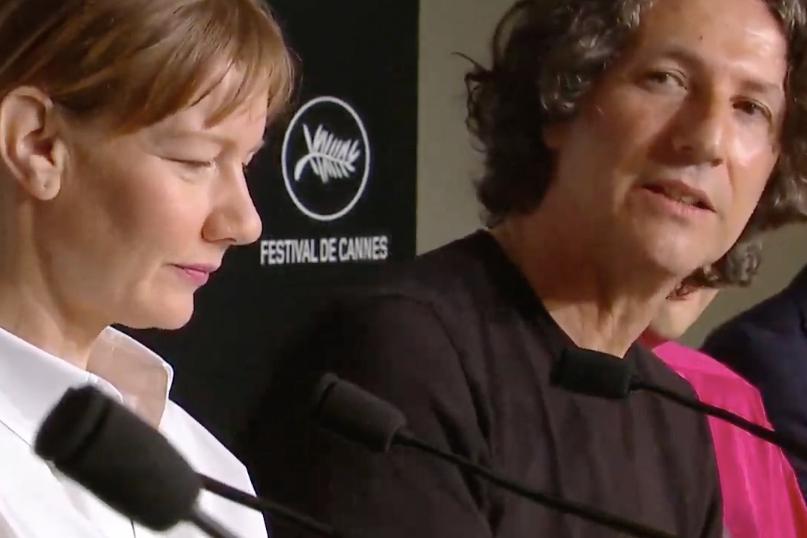
Jonathan Glazer and Sandra Hüller at the press conference following the premiere of The Zone of Interest at the 76th Cannes Film Festival.
Lukasz Zal‘s (Cold War) photography and colour treatment are impeccable in bringing a sense of scrupulousness to each room, of detachment in social gatherings, where we wonder about the origin of the furniture, of the goods surrounding the family, even of the birthday presents.
The Höss family is presented to us in the first scene from the distance with which one contemplates a bucolic scene, a Sunday in the countryside, on the banks of the river. The placidity of a group of people of different ages, relaxed in swimming costumes, whose voices do not reach us clearly, the calmness with which they gather their belongings and drive back home in two cars, however, has an uneasiness that is difficult to describe. Glazer is a master of atmosphere, a creator of unique and above all unsettling environments, but in the case of The Zone of Interest, where the focus is on the baddies among the baddies, the director of Sexy Beast has resorted to a monumental off-camera to shake us from top to bottom, with the use of an excellent sound design —which does not allow us to ignore even for a moment what is hidden behind the wall— as well as the overwhelming soundtrack by Mica Levi (Under the Skin, 2013).
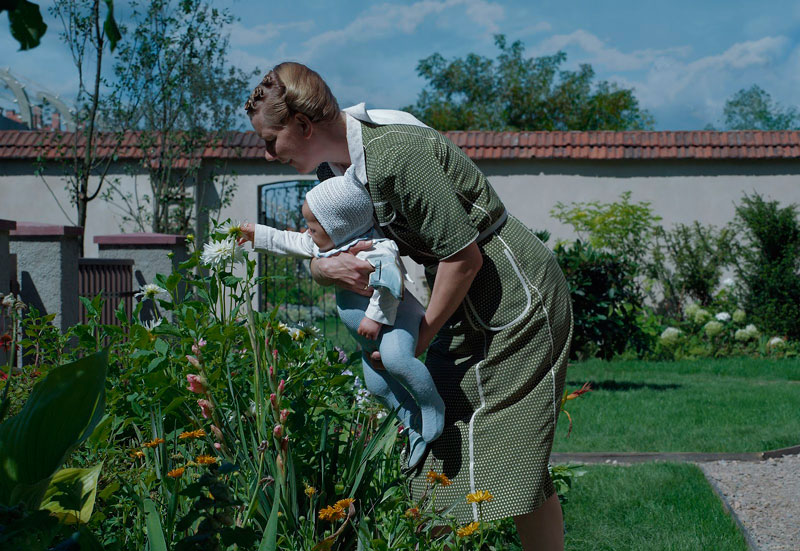
While the Höss children play in the garden, eat breakfast, and their mother drinks coffee with her friends or hosts pool parties, with the banality of a world as protected as the greenhouse she looks after every day, the only possible setback is that the mink her husband brings her back from work is too big for her, but is compensated for by a randomly found piece of jewellery in his pocket. The lingerie haul is divided among the servants, and Hedwig’s mother, who is visiting the house, complains of having lost at auction the curtains she has always admired at the home of her former employer, Mrs Silberman, who is probably on the other side of the wall, as she remarks in passing.
Glazer, unlike Amis, will never make us penetrate that boundary, because we don’t need to know more, we already know it all, we have seen thousands of photographs, documentaries and fictional films recreating the Holocaust, the ramp, the selection, the bestiality of the kapos, the before, during and after. We have seen Soah, Night and Fog, Amen, The Pianist, Schindler’s List and so many others. Even the adaptation of The Boy in the Striped Pajamas put us in that borderland at the foot of the barbed wire.
It is a challenge to write about The Zone of Interest and not use the word “banality”, but the director does not need to remind us of it. This kind of evil pervades the film permanently, filtering through the orders carried out, the opportunism that Höss’s mother-in-law comes to express, the attachment to a new status quo in which everything is an advantage for those who do not ask questions, or if they do ask them, they can answer them with the scruples of a mercenary.
Mrs. Höss is proud of her house, her garden, her plants fertilised with the ash from the crematorium, her wardrobe well nourished by looting, but Glazer interprets cruelty with the mastery of ignoring, no longer the underlining but even the enunciation. Here the only important thing is the essence, it is not a matter of Glazer’s characters looking the other way but of revealing the most hidden, profound and shameful without any blush —including Hedwig’s own attitude to Rudolph’s transfer— behind the alibi of feeling part of that elite destined to achieve a better world, be it the Reich of a thousand years or the glorification of any other opportune destiny in the universal, which frees us from both conscience and guilt.
The Zone of Interest won four prizes at the Cannes Film Festival, the Grand Prix du Jury, the FIPRESCI, Best Soundtrack for Mica Levi and the CST Artist Technical Award.
This article was first published on 22 May 2023.

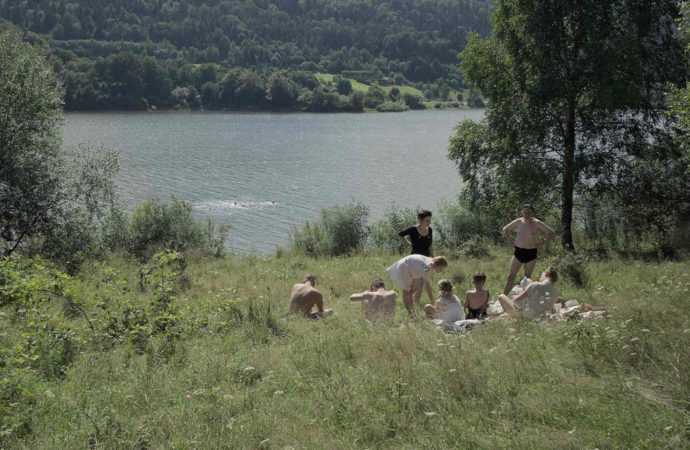

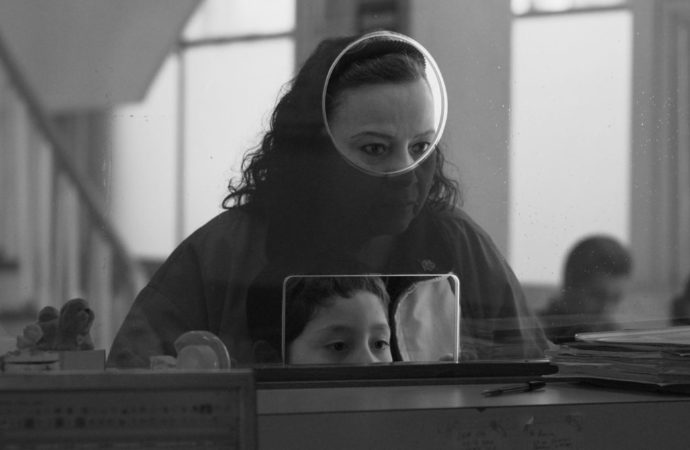
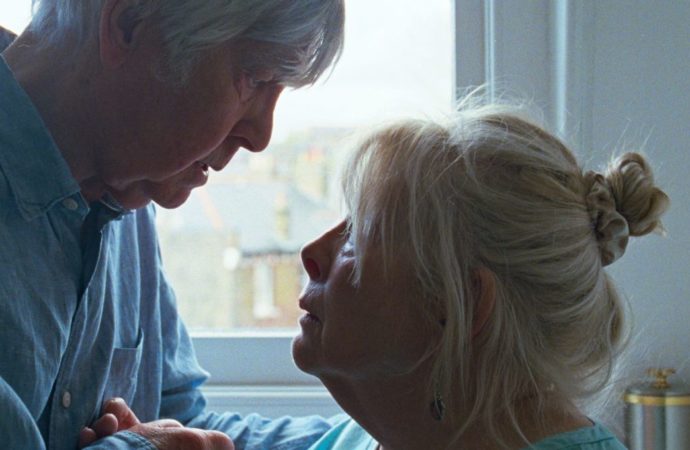
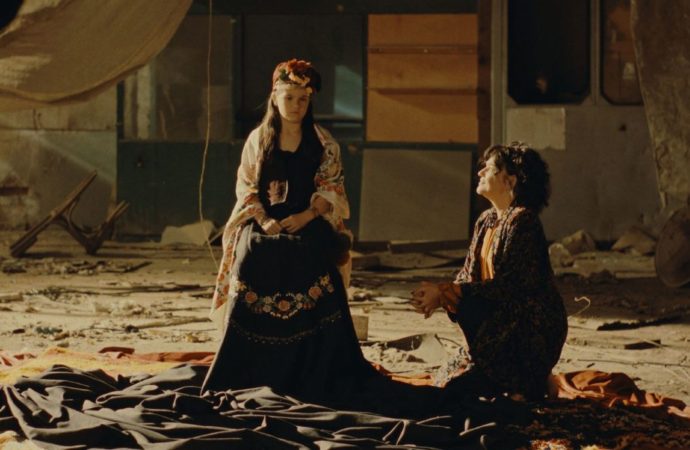
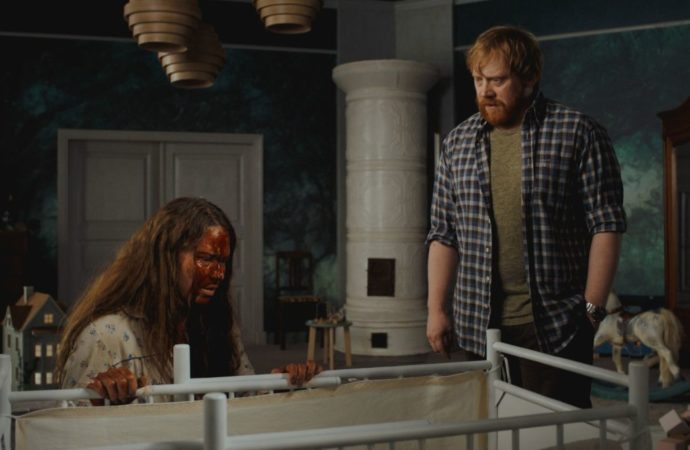
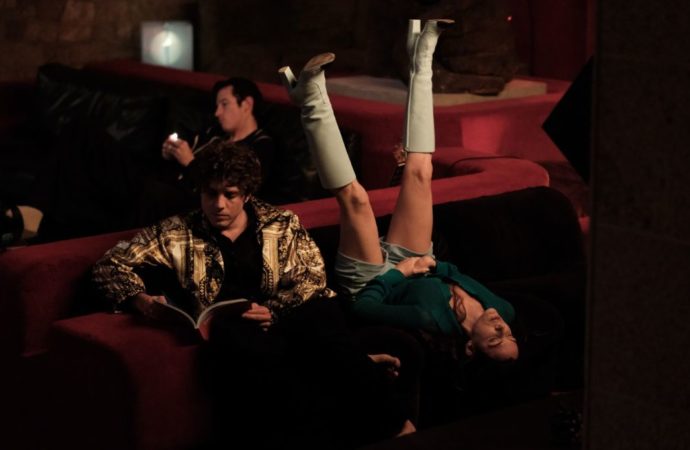
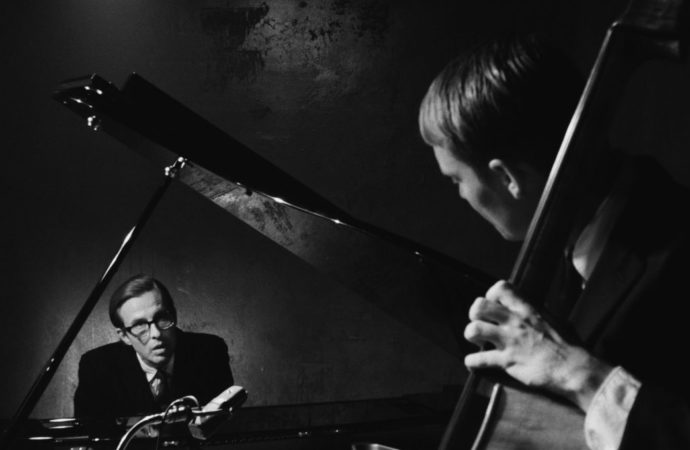
No one has posted any comments yet. Be the first person!